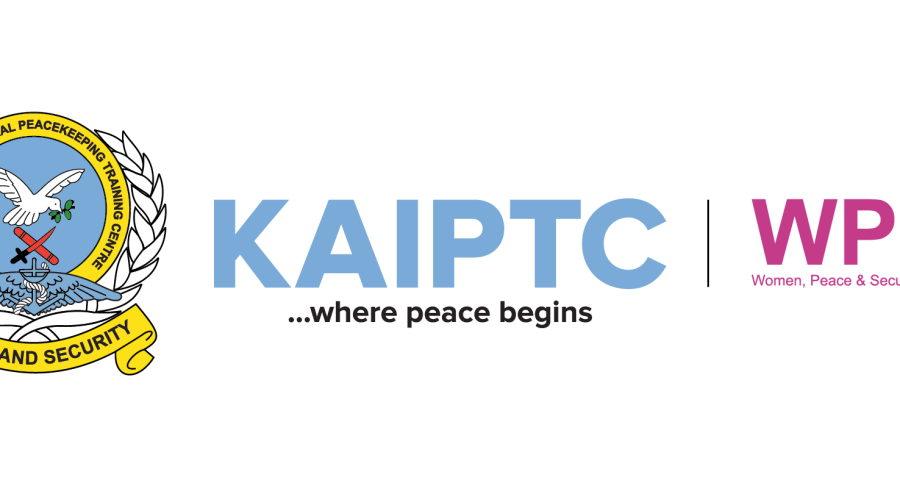The Head of the Women, Peace and Security Institute (WPSI) at the Kofi Annan International Peacekeeping Training Centre (KAIPTC), Mrs. Joana Ama Osei-Tutu, has called for more innovative campaigns to end gender-based violence.
She noted that while all the violence in gender-based violence (GBV) in the Central African Republic (CAR) pointed to armed perpetrators, it’s prevalence in communities were extremely under-reported.
She made this call at a training organized by KAIPTC through its Women, Peace and Security Institute to enhance the capacity of local actors in the CAR to effectively prevent and respond to GBV in the country, and in Africa as a whole. It was one in a series of training sessions in selected African countries.
Why the training
The training was targeted at a cross section of local actors engaged in preventing and responding to GBV. These include the National Police, Civil Society Organizations (CSOs), the Media, Faith-Based Organizations (FBOs), Traditional and Communities Leaders, Teachers and the Judiciary. A total number of 20 participants attended the training.
Organised with the support of the CAR’s Ministry of Gender and the Fondatrice de L’OMCD, the organisers are counting on the course to contribute to creating a better understanding of GBV, enhance individual knowledge and skills, shape attitudes while building a sense of team work and better collaboration among key local actors engaged in preventing and responding to GBV.
The international laws and frameworks exist, so do local laws but GBV is still prevalent in the CAR because of multiple factors, including the low prosecution rates of offenders. This is as a result of the failure of the investigators to effectively investigate GBV cases.
But that is not all; Mrs. Osei-Tutu said the lack of impact of the legal frameworks had also been because of the weak messaging and domestication that has accompanied the dissemination of these frameworks to the local communities.
Additionally, local actors lack capacity to implement the frameworks and resolutions which are meant to mitigate GBV, including all forms of sexual and gender-based violence in conflict and post conflict situations, for which women and girls remain vulnerable.
What are these laws?
The Protocol to the African Charter on Human and Peoples’ Rights on the Rights of Women in Africa (Maputo Protocol) and the UN Security Council Resolution 1325 and subsequent Resolutions acknowledge how disproportionally women and girls are impacted by violent conflicts and wars, and recognized the critical role that women can and already do play in peacebuilding efforts.
Ms. Osei-Tutu provided rather worrying statistics from the United Nations Multidimensional Integrated Stabilization Mission in the Central African Republic (MINUSCA).
Unpleasant data
The report captured 240 cases of conflict-related sexual violence. These incidents included rapes or attempted rapes and cases of sexual slavery.
The perpetrators include armed rebel and militia groups including Retour, réclamation et réhabilitation, Union pour la paix en Centrafrique, Mouvement patriotique pour la Centrafrique, Mouvement patriotique pour la Centrafrique, the Lord’s Resistance Army. Ironically, the CAR’s Armed Forces is also recorded among the list of culprits.
But she had a panacea. She called for continued effort to “develop innovative approaches to prevent and respond to the elimination of gender-based violence within our communities.” According to her, one of such innovative approaches emanated from recommendations made during KAIPTC’s celebration of the 20th anniversary of the UNSCR 1325 in 2020.
“It was identified that an impactful approach to eliminate this scourge will be to re-examine the approaches adopted to engage with local actors in the delivery of sensitization and advocacy tools in our communities. Following this, a survey was conduct which provided information leading to the development of a training guide on GBV”.
The training delivered in the CAR has already been organized in Nigeria, Niger, Ghana and Cameroon. The beneficiary countries, she said, were chosen due to the peculiar nature of occurrences in their countries.
She expressed gratitude to the Government of Sweden for its commitment to promoting the women, peace and security agenda, and for supporting KAIPTC on the project addressing Gender-Based Violence in Africa.
GBV Global pandemic
The initiative forms part of KAIPTC’s broader strategic objective to build African capacity to fully implement the Protocol to the African Charter on Human and Peoples’ Rights on the Rights of Women in Africa (Maputo Protocol) and the UN Security Council Resolution 1325 and follow-up Resolutions on Women, Peace and Security in the context of Africa, with specific focus to assist Member States to eliminate GBV.
Violence against women and girls has been noted to be one of the most prevalent human rights violations in the world. The World Bank, in 2019, described Gender-Based Violence or Violence against women and girls as a global pandemic as it affects 1 in 3 women in their lifetime.


